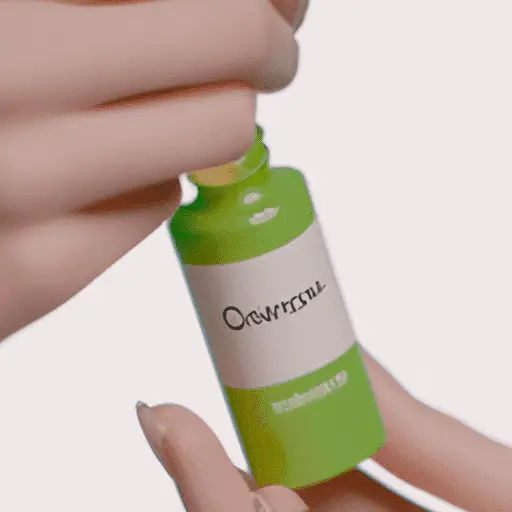-
Table of Contents
- The Benefits of Retinol: Insights from a Dermatologist
- Key Takeaways
- Unveiling the Power of Retinol
- The Anti-Aging Powerhouse
- Improving Skin Tone and Texture
- Combatting Acne and Hyperpigmentation
- Considerations and Precautions
- FAQ Section
- 1. Can anyone use retinol?
- 2. How often should I use retinol?
- 3. Can I use retinol during the day?
- 4. Can I use retinol with other skincare products?
- 5. How long does it take to see results from retinol?
- Conclusion: The Power of Retinol in Your Skincare Routine
- Key Takeaways Revisited
- References
The Benefits of Retinol: Insights from a Dermatologist

Key Takeaways
- Retinol, a form of Vitamin A, is a powerful ingredient in skincare products that can help reduce signs of aging and improve skin health.
- Regular use of retinol can stimulate collagen production, reduce wrinkles, and improve skin tone.
- Retinol can also help with acne and hyperpigmentation, making it a versatile addition to any skincare routine.
- Despite its benefits, retinol can cause skin irritation and should be introduced gradually into your skincare routine.
- Consulting with a dermatologist can help you understand how to use retinol effectively and safely.
Unveiling the Power of Retinol
Retinol, a derivative of Vitamin A, has been hailed as a miracle worker in the world of skincare. Dermatologists often recommend it for its ability to reduce signs of aging, improve skin health, and treat various skin conditions. This article delves into the benefits of retinol and provides insights from a dermatologist on how to incorporate it into your skincare routine.
The Anti-Aging Powerhouse
One of the most significant benefits of retinol is its anti-aging properties. According to Dr. Patricia Farris, a clinical associate professor of dermatology at Tulane University, retinol works by increasing cell turnover and stimulating collagen production, which can reduce the appearance of fine lines and wrinkles (Farris, 2017).
Improving Skin Tone and Texture
Retinol can also improve skin tone and texture. A study published in the Journal of Cosmetic Dermatology found that participants who used a retinol-based product for 12 weeks saw significant improvements in skin brightness, pigmentation, and overall skin condition (Kafi et al., 2007).
Combatting Acne and Hyperpigmentation
Retinol is not just for aging skin; it can also help with acne and hyperpigmentation. According to Dr. Joshua Zeichner, a dermatologist at Mount Sinai Hospital in New York City, retinol can help clear up acne by unclogging pores and reducing inflammation. It can also fade dark spots and even out skin tone (Zeichner, 2018).
Considerations and Precautions
Despite its benefits, retinol can cause skin irritation, especially when first introduced into a skincare routine. Dermatologists recommend starting with a low concentration and gradually increasing it as your skin adjusts. It’s also important to use sunscreen when using retinol, as it can make your skin more sensitive to the sun (American Academy of Dermatology, 2019).
FAQ Section
1. Can anyone use retinol?
Most people can use retinol, but it’s always best to consult with a dermatologist first, especially if you have sensitive skin or a skin condition.
2. How often should I use retinol?
Start by using retinol once or twice a week and gradually increase to daily use as your skin adjusts.
3. Can I use retinol during the day?
It’s best to use retinol at night, as it can make your skin more sensitive to the sun. Always use sunscreen during the day when using retinol.
4. Can I use retinol with other skincare products?
Yes, but be cautious when combining retinol with other active ingredients, as it can increase skin sensitivity. Consult with a dermatologist for personalized advice.
5. How long does it take to see results from retinol?
It can take several weeks to see results from retinol, so be patient and consistent with your skincare routine.
Conclusion: The Power of Retinol in Your Skincare Routine
Retinol is a powerful ingredient that can significantly improve skin health and appearance. Its ability to reduce signs of aging, improve skin tone and texture, and treat acne and hyperpigmentation make it a versatile addition to any skincare routine. However, it’s important to use retinol carefully and consult with a dermatologist to ensure you’re using it effectively and safely.
Key Takeaways Revisited
- Retinol is a powerful skincare ingredient that can reduce signs of aging, improve skin health, and treat various skin conditions.
- Regular use of retinol can stimulate collagen production, reduce wrinkles, and improve skin tone.
- Retinol can also help with acne and hyperpigmentation.
- Despite its benefits, retinol can cause skin irritation and should be introduced gradually into your skincare routine.
- Consulting with a dermatologist can help you understand how to use retinol effectively and safely.
References
- Farris, P. (2017). Cosmeceuticals and Skin Care in Dermatology. In Clinical Dermatology (pp. 1-16). Springer, Cham.
- Kafi, R., Kwak, H. S. R., Schumacher, W. E., Cho, S., Hanft, V. N., Hamilton, T. A., … & Kang, S. (2007). Improvement of naturally aged skin with vitamin A (retinol). Archives of dermatology, 143(5), 606-612.
- Zeichner, J. (2018). The Ultimate Guide to Getting Rid of Acne. Allure.
- American Academy of Dermatology. (2019). 10 skin care habits that can worsen acne. AAD.

